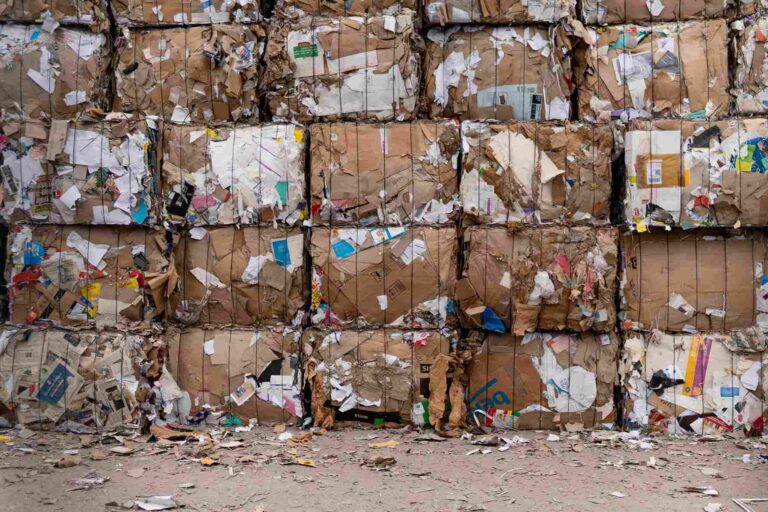Among the top five EU economies, Italy remains the leading country in the circular economy, followed by Spain, France, Germany and Poland. Despite its leadership, the trend is slowing down, while in Spain and Poland it is growing faster.
This is what emerges from the fifth edition of the National Report on the Circular Economy, produced by the Circular Economy Network.
In spite of the fact that the alarms about the environmental crises chase each other, the rate of circularity in the world economy is decreasing.
In other words, the Planet is recycling and reusing less. Among the top five economies in the EU, Italy remains the most circular country in Europe. Even if it has been losing positions in the last five years while other states are accelerating.
Table of Contents
The report of the circular economy network
According to the National Report on the Circular Economy, the rate of circular material use in Italy is at 18.4%, remains higher than the EU average (11.7%) in 2021.
For resource productivity Italy is, together with France, ahead of the other main European economies with 3.2 euro generated for every kg of material consumed. Also in the percentage of recycling on the total waste produced, special and urban, Italy is in the lead with 72%.
In the overall circularity ranking of the five main economies of the European Union (Italy, Germany, France, Spain and Poland) Italy therefore remain the leader. But, in the trend of the last five years, the country is losing positions. Spain is following close behind and is changing faster than Italy.
Italy is leader in recycling
The overall circularity ranking in the top five economies of the European Union (France, Germany, Italy, Poland, Spain) is based on seven indicators:
- waste recycling rate;
- rate of material utilisation from recycling;
- resource productivity;
- ratio of waste production to material consumption;
- share of energy from renewable sources in total gross energy consumption;
- repair;
- land consumption.
Once again in this edition, Italy leads the ranking, scoring 20 points. It is followed by Spain (19 points), France (17), Germany (12) and Poland (9).
In general, considering the trend of recent years, Italy improves less than Poland, which starts from very low levels of circularity, and Spain, which is running faster. While keeping the same pace as France and going a little faster than Germany.
Read also: Zero waste movement: what is it and how to apply it
Comparison between Italy and other European countries
The percentage of waste recycling in 2020 – according to the report’s data – was 53% in Europe and 72% in Italy, one of the highest recycling rates in the EU.
Compared to other major European economies, Italy consolidated its lead in 2020, surpassing Germany by about 17 points.
The growth rate over the last ten years is unchanged for the EU, while it rose by 8% in Italy and 3% in Spain. In terms of per capita values, Italy ranks first with 969 kg/inhabitant per year sent for recycling, followed by Germany (921), Poland (726), France (625) and Spain (472).
Less positive for Italy is the trend in the rate of material use from recycling. Namely, the ratio of circular material use to total use, i.e. from virgin raw materials plus recycled materials.
In the EU in 2021 this averaged 11.7%, – 0.1% compared to 2020. For the first time, Italy in 2021 suffered a decrease, standing at 18.4% (2.2% less than the previous year). Thus losing the lead among the five largest European economies. It was surpassed by France, leading with 1.4 percentage points more.
In 2021, on average, in Europe, at purchasing power parity, 2.1 euro of GDP will be generated for every kg of resources consumed. Also for this indicator, Italy (-7% in the last two years) has been joined by France. Both are at 3.2 €/kg. They are followed by Germany (2.7 €/kg) and Spain (2.6 €/kg). While Poland (0.8 €/kg) is far behind.
Read also: EU plans to stop plastic packaging: only recycling and reuse allowed












